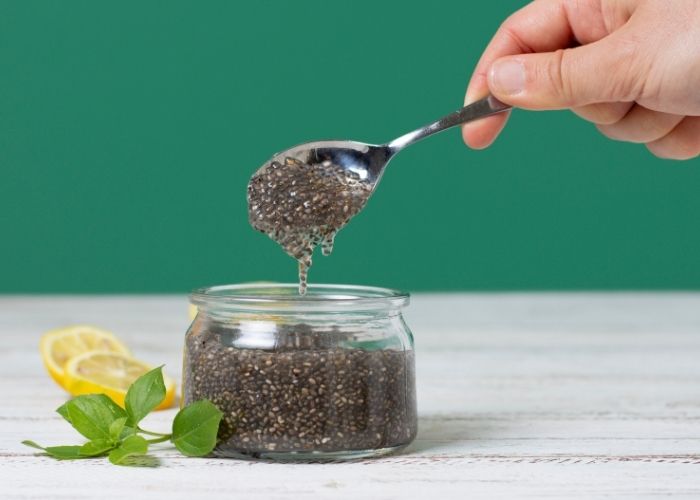Beating PCOS Naturally: A Fertility Nutrition Story
Introduction
PCOS-Polycystic Ovary Syndrome affects millions of women across the world, impacting hormones, weight, and often, fertility. Over the years, I’ve had the privilege of working with many women who visited Dr. Joline's Clinic and, through nutrition and lifestyle changes, overcame the fertility challenges that PCOS often brings.
These women took control of their wellness through targeted nutrition—addressing blood sugar balance, inflammation, and hormonal health. Here’s a look into how nutrition was pivotal in their journeys, highlighting the nutrient intakes, lifestyle adjustments, and powerful success stories that underscore how transformative dietary changes can be.
1. The Foundation: How Nutrition Impacts Fertility in PCOS
PCOS can lead to hormonal imbalances, irregular cycles, and insulin resistance, all of which complicate conception. Nutrients and specific foods can help regulate hormone production, enhance egg quality, and support a healthier reproductive system. According to Dr. Jolene, a balanced diet reduces inflammation, controls blood sugar levels, and fosters a more fertile environment. As my clients’ stories reveal, nourishing the body with the right food can open doors to new possibilities. You can also read more about Misleading Dietary Trends for PCOS
2. Priya’s Story: Balancing Blood Sugar for Hormonal Harmony
When Priya first came to me, she was struggling with irregular cycles, mood swings, and a sense of hopelessness. Together, we crafted a plan focusing on blood sugar stability and reducing inflammation. Our approach included:
• Whole Grains and Fiber: Foods like quinoa and barley replaced refined sugars, helping Priya achieve steady energy and support hormonal regulation.
• Omega-3-Rich Fats: Chia seeds, flaxseeds, and salmon became staples, reducing inflammation.
• Antioxidant Support: Fruits like blueberries and leafy greens helped protect her eggs from oxidative stress.
After six months of following her nutrition plan, Priya’s cycle normalized, her energy levels improved, and eventually, she could conceive. Priya’s journey illustrates how regulating blood sugar through whole foods can balance hormones and lead to better fertility. Read more about Priya's success story.
3. Madhuri’s Story: A Balanced Approach to a Busy Life
Madhuri was a dedicated professional balancing a hectic lifestyle with PCOS challenges. Her irregular cycles and stress levels needed to be addressed in a way that would be sustainable for her. We focused on balancing her diet with nutrient-dense, easy-to-prepare foods:
• Lean Proteins: Foods like eggs, legumes, and lean meats helped balance her blood sugar.
• Fibre-rich foods: Including oats, brown rice, and vegetables to improve her digestion and hormonal health.
• Healthy Fats: We added nuts and seeds to her routine to support her reproductive hormones.
With a few months of consistency and commitment, her cycle regulated with a decrease in her stress levels, and she conceived! Her story demonstrates that a balanced, manageable approach to nutrition can support fertility, even in a busy lifestyle. Read Madhuri's success story to know more.
4. Hema’s Story: Rebuilding Wellness with Iron, B-Vitamins, and Antioxidants
Hema was ready for a complete change after years of PCOS symptoms, from acne, and weight gain to painful cycles. To feel healthier—and, perhaps, conceive—Hema embraced a nutrition plan centred around reducing oxidative stress, supporting her energy levels, and balancing her hormones:
• Iron and B vitamins: Foods like lentils, leafy greens, and eggs were essential for energy and egg quality.
• Antioxidant-Rich Foods: Berries, bell peppers, and spinach helped reduce oxidative stress.
• Whole Grains for Blood Sugar: Barley and quinoa helped stabilize her insulin levels.
Over several months, Hema’s skin cleared up, her cycles became regular, and eventually, she received the positive pregnancy test she had hoped for. Her journey showcases the impact of incorporating nutrient-dense foods to manage PCOS symptoms and boost fertility. Read more about Hema's success story.
5. Nutritional Building Blocks for Fertility with PCOS
In supporting each client’s fertility, I focused on nutrients and dietary changes that could help restore balance and health:
• Folic Acid: Essential for egg quality, found in leafy greens, legumes, and citrus fruits.
• Healthy Fats: Omega-3s from fatty fish, chia seeds, and flaxseeds for hormonal support.
• Iron and B vitamins: Important for reproductive health, providing energy, and enhancing egg quality.
• Antioxidants: Vitamin C and E from citrus fruits and nuts ensure egg's health.
• Whole Grains: Brown rice, oats, and quinoa for balanced blood sugar and sustained energy.
These nutrients not only support hormonal health but also help regulate the menstrual cycle, reduce inflammation, and create a nourishing foundation for conception.
6. Lifestyle Tips to Enhance Nutritional Impact
Beyond diet, lifestyle changes also play a crucial role. Each of these women incorporated habits like:
• Limiting Alcohol: To avoid hormonal disruption.
• Moderate Exercise: To reduce stress and maintain a healthy weight. For more information regarding exercises essential to cure PCOS, read FitNFab: Top Exercises for PCOS & Menstrual Irregularities
• Adequate Sleep: Poor sleep can impact hormones and fertility adversely.
• Hydration: Drinking enough water boosts metabolism and overall health.
Conclusion
These stories of Priya, Madhuri, and Hema are testimonies to the power of nutrition in managing PCOS and supporting fertility. Through tailored nutrition plans, these women transformed their health and achieved their dreams of motherhood.
For those facing PCOS, there is hope—beginning with mindful choices on your plate. To get more information regarding women's health, nutrition and fertility please visit Dr. Joline.





